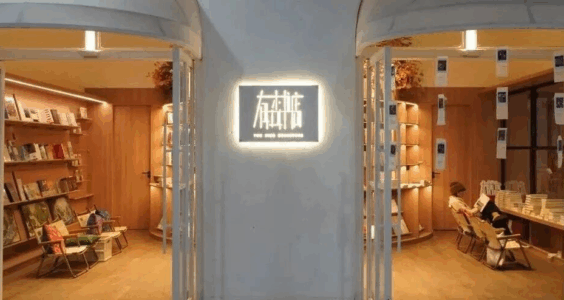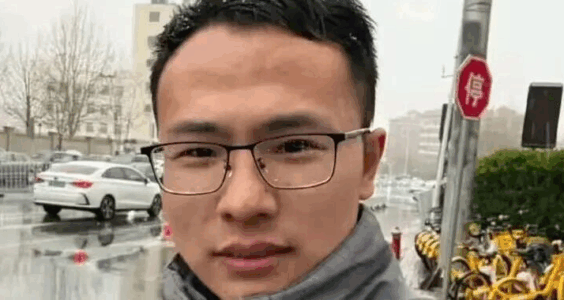周昱君
2025-11-06T07:06:46.651Z

這次關稅案會加速審理,有觀察指大法官可能今年底前之前做出裁決。
(德國之聲中文網)美國最高法院週三(11月5日)舉行言詞辯論會,審理美國總統川普動用緊急權力施加關稅是否具合法性,全長超過2個半小時。9位大法官有6人偏保守,他們之中有3位是川普第一個任期內所任命;另外3人屬於自由派。不過,不只自由派大法官質疑川普的關稅,至少有3位保守派大法官也表達了疑慮。
此案備受關注,因為這是川普重返白宮以來,其政策首度面臨重大的法庭考驗,大法官的裁決結果也將影響川普政府的關稅措施與整體經濟政策走向。
5日,法庭現場幾乎座無虛席,到場旁聽的還包含主導關稅談判的三位重要經濟官員:美國財長貝森特(Scott Bessent)、商務部長盧特尼克(Howard Lutnick)、貿易代表格里爾(Jamieson Greer)。貝森特接受福斯新聞訪問時,對辯論情況表示「非常樂觀」,而若最高法院裁決結果不利於聯邦政府,那他們就會改以其他的法律工具,來確保能繼續實施關稅。
川普本人並未出席辯論,但他透過「真實社群」平台表示,最高法院的裁決結果對美國可說是「生死攸關」。
川普寫道:「如果(政府)勝訴,會為我們帶來巨大、公平的財政與國家安全局勢……失敗的話,我們面對那些佔我們便宜多年的其他國家,可以說是毫無抵抗之力。」
一般而言,大法官需要好幾週甚至好幾個月才能做出裁決,但外界預期此案可能加速推進。例如今年初最高法院審理TikTok禁令的案件時,便在言詞辯論的隔週就做出裁決,當時大法官一致認定「不賣就禁」的法律不違憲。
相关图集:特朗普关税战2.0时间线梳理
 2025年2月1日 |对墨、加、中加征关税
2025年2月1日 |对墨、加、中加征关税:特朗普上任后首次大规模加征关税:自2月1日开始对美国三大贸易伙伴加拿大、墨西哥和中国加征关税。特朗普宣布对邻国加拿大和墨西哥进口商品加征25%的关税,指责两国未能阻止非法移民进入美国;对来自中国商品加征10%的关税,指责中国在芬太尼生产中扮演重要角色。
 2025年2月10日 |加征钢铝关税 无例外豁免
2025年2月10日 |加征钢铝关税 无例外豁免:特朗普2月10日签署行政令,对所有进口至美国的钢铁和铝制品加征25%关税,并取消加拿大、墨西哥和巴西等钢铝主要供应国的免税额度。
 2025年3月26日|宣布对进口汽车全面征税
2025年3月26日|宣布对进口汽车全面征税:特朗普于3月26日宣布,自4月3日起,对所有进口汽车与轻型卡车征收25%的关税。全球汽车供应链受冲击,日韩汽车产业首当其冲。受此消息影响,丰田、本田、现代和起亚等汽车制造商股价大幅下跌,总市值蒸发约165亿美元。
 2025年4月2日|宣布“对等关税”
2025年4月2日|宣布“对等关税”:特朗普4月2日在白宫玫瑰花园举行“让美国再次富有”(Make America Wealthy Again)记者会,宣布“对等关税”措施。美国对大多数国家征收10%的基准关税,但针对特定国家征收更高税额。中国、欧盟和越南分别面临34%、20%和46%的关税; 日本、韩国、印度、柬埔寨和台湾,分别受到24%、25%、26%、49%和32%进口关税的打击。
 2025年4月9日|暂缓关税90日 中国除外
2025年4月9日|暂缓关税90日 中国除外:特朗普4月9日在大规模“对等关税”上路不到24小时后出现政策大转弯,宣布暂缓征收“对等关税”90天,在此期间,税率将统一降至10%的基准关税。但中国被排除在暂缓名单之外,不仅如此,还将对中国的关税加码至145%,其中包含了美国此前指控中国打击芬太尼不力而征收的20%关税。
 2025年5月4日 | 对美国境外制作的电影征收100%关税
2025年5月4日 | 对美国境外制作的电影征收100%关税:特朗普5月4日以“国安威胁”为由,宣布将对非美国制作的电影征收100%关税,理由是要“拯救美国电影业”。
 2025年5月12日|中美关税战90天“停火协议”
2025年5月12日|中美关税战90天“停火协议”:美中高层在瑞士进行谈判后于5月12日发布联合声明,就90天的“暂停期”达成协议:美国对大多数中国输美商品加征145%的关税将在5月14日前下调至30%,30%关税里包括针对芬太尼问题额外施加的20%惩罚性关税;中国对美产品加征的125%关税则将降至10%。美中双边早前不断叠加的报复性关税,在这波协商中几乎都被取消。(图为美财政部长贝森特与贸易谈判代表格里尔出席美中贸易会谈)
 2025年5月13日|美大幅下调中国“小包裹”关税
2025年5月13日|美大幅下调中国“小包裹”关税:白宫5月13发布行政命令,将从5月14日起将对中国低价值货物(不超过800美元)征收的“最低限度”关税从120%下调至54%,原计划的200美元固定费用征税方案被搁置,现行的100美元固定费用将继续执行。
 5月23日 对阵欧盟
5月23日 对阵欧盟:特朗普威胁自6月1日起对欧盟商品加征50%的统一关税。他同时警告苹果公司,若其在美国销售的手机是在海外生产的,将面临25%的关税。两天后,特朗普收回了对欧盟加征50%关税的威胁,他表示,与欧委会主席冯德莱恩通电话后,同意将美国和欧盟的谈判期限延长至7月9日。
 5月28日 美国法院裁定特朗普对等关税“越权”
5月28日 美国法院裁定特朗普对等关税“越权”:美国联邦国际贸易法庭裁定,特朗普今年4月2日对多国征收的对等关税,以及早前向中国、加拿大和墨西哥加征的报复性关税都属于“非法”。判决认定,特朗普征收全球关税的行为超出了《国际经济紧急权力法》(IEEPA)赋予总统的权限。美政府表示将对该裁决提出上诉。
 5月29日 美国上诉法院暂准特朗普关税恢复执行
5月29日 美国上诉法院暂准特朗普关税恢复执行:美国联邦上诉法院一天后推翻该判决,让特朗普的关税政策得以持续实施。上诉法院指出,为了审理特朗普政府的上诉,将先暂缓此前法院的裁决,并命令原告及特朗普政府分别在6月5日和6月9日前提交回应文件。
 5月30日 特朗普全面上调钢铝关税
5月30日 特朗普全面上调钢铝关税:美国总统特朗普宣布将对全球钢铁和铝产品的进口关税提高至50%。中国是美国的第三大铝供应国。他指责中国未按约降低关税,取消针对稀土等产品的贸易限制。他说:“中国完全违反了与我们达成的协议。不能再做好好先生了!”
 6月10日 美中谈判双方宣布原则上达成贸易框架协议
6月10日 美中谈判双方宣布原则上达成贸易框架协议:中国和美国官员在英国伦敦举行贸易谈判,经过两天的会议,6月10日,双方宣布原则上已达成贸易框架协议,以落实5月在瑞士日内瓦的共识、还有两国领袖上周的通话内容。特朗普在社交媒体Truth Social上表示,按照美中达成的新的贸易协议,美国将从中国获得稀土磁体。他还表示,将允许中国学生在协议达成后继续留在美国大学学习。
案件來龍去脈
這次關稅案的核心爭議在於,川普援引1977年的《國際緊急經濟權力法》(IEEPA)對他國加徵關稅是否「越權」,因為徵稅的權力原本是屬於國會。
《國際緊急經濟權力法》授權美國總統在緊急狀況時出手「管控」(regulate)經濟,但過去從未被用來對外國加徵關稅。
然而,川普自今年1月重返白宮後已兩度動用該法,首先是2月時以打擊芬太尼毒品流通為由,對中國、加拿大、墨西哥加徵關稅;隨後在4月,他再主張美國貿易逆差過多、已構成「非比尋常的威脅」,對全球幾乎所有的美國貿易夥伴施加「對等關稅」。
面對川普的關稅政策,美國12個州今年4月在紐約的美國國際貿易法院聯手提告聯邦政府,主張總統越權,而且關稅帶來的消費成本會轉嫁到美國人民身上。另有一些美國進口商也提出訴訟,質疑川普所稱「貿易逆差構成緊急狀態」的說法,並指新關稅嚴重衝擊了中小企業。
針對上述案件,紐約國際貿易法院今年5月已裁定川普的「對等關稅」超出了《國際經濟緊急權力法》賦予總統的權限,屬於「越權」。聯邦政府隨後提出上訴,如今案件由最高法院審理。

美國總統川普稱,若最高法院裁決結果不利於聯邦政府,將對美國帶來災難性後果。
法庭上的辯論攻防
自由派大法官索托馬耶爾(Sonia Sotomayor)指出,課稅的權力屬於國會,而非總統:「你們想主張關稅(tariffs)不是稅(taxes),但其實它就是。」
川普提名的保守派大法官戈薩奇(Neil Gorsuch)對於徵稅權從國會轉往總統身上的情況,也提出疑慮。他強調,「使美國人民掏腰包的權力」,必須經由地方層級的民選代表才能行使。
代表中小企業團體的律師卡泰爾(Neal Katyal)在法庭上說,若最高法院支持川普政府的立場,形同讓國會從此失去課徵關稅的控制權,「以後再也拿不回來」。
偏保守陣營的首席大法官羅伯茨(John Roberts)進一步探討緊急權力法是否允許政府對任何產品、任何國家加徵關稅,且不限數額與時間。由川普提名的大法官巴雷特(Amy Coney Barrett)提出疑問:「對西班牙和法國也徵稅?我可以理解對某些國家徵稅,但請解釋為什麼有必要對這麼多國家實施對等關稅政策。」
另一個爭議問題是,川普課關稅究竟是為了「管控商貿」還是「籌措收入」。代表川普政府出庭的聯邦檢察總長索爾(John Sauer)說:「川普總統認定我們的貿易逆差在爆炸,讓我們處於經濟與國家安全災難的邊緣。」
索爾主張,失衡的貿易關係是全球的問題,而川普施加關稅是為了調節對外貿易,主要目的是讓美國與外國的經貿關係變得更公平,而非為了賺取稅務收益。不過,雖然索爾稱「徵稅帶來的收益只是附帶的」,川普本人仍多次強調關稅的好處在於替美國帶來大量進帳。根據美國海關數據,到9月23日為止,美國依緊急權力法所徵收的關稅收益大約900億美元。
專家怎麼看?
法新社引述荷蘭國際集團(ING)分析師觀點指,最高法院近年「對於推翻這麼重大的總統決策,抱持較謹慎的態度」;不過,此案的結果還是很難預測,因為如果維持川普的關稅政策,「會把權力平衡從國會移轉到總統身上」。
美國智庫大西洋理事會(Atlantic Council)專家利普斯基(Josh Lipsky)則表示,雖然有些大法官抱持懷疑態度,但似乎也擔心推翻關稅政策可能引發什麼連鎖效應:「要怎麼退稅?又會如何影響總統的外交談判能力?」
前美國商務部長羅斯(Wilbur Ross)向美國有線電視新聞網(CNN)表示,若最高法院裁決偏向質疑者的觀點(即主張徵收關稅屬於國會權力),將導致國際貿易與證券市場混亂。他推測最後的裁決會是分歧的結果,「頂多撤銷其中幾項特定的關稅措施」。
DW中文有Instagram!歡迎搜尋dw.chinese,看更多深入淺出的圖文與影音報導。
© 2025年德國之聲版權聲明:本文所有內容受到著作權法保護,如無德國之聲特別授權,不得擅自使用。任何不當行為都將導致追償,並受到刑事追究。





















